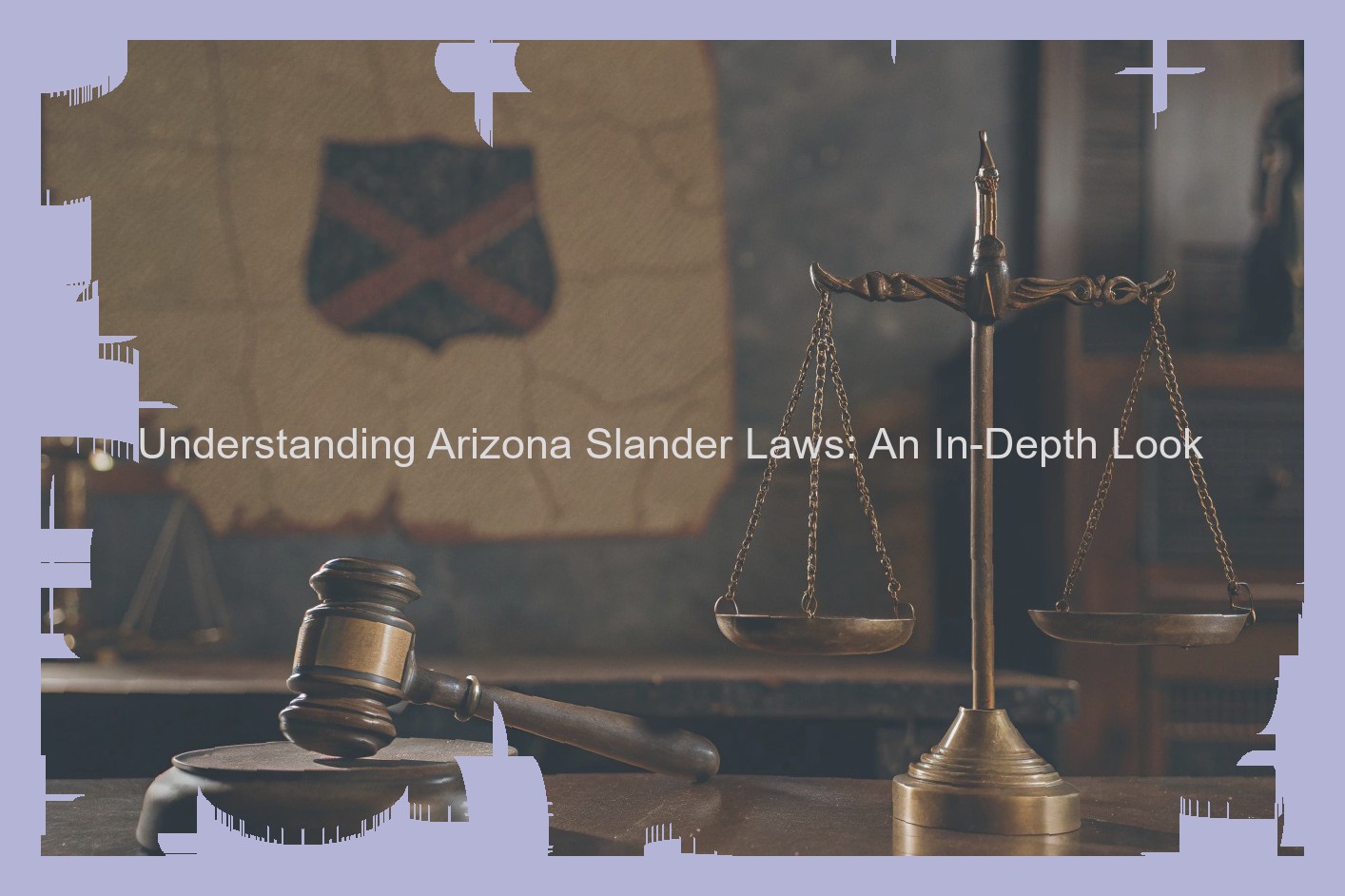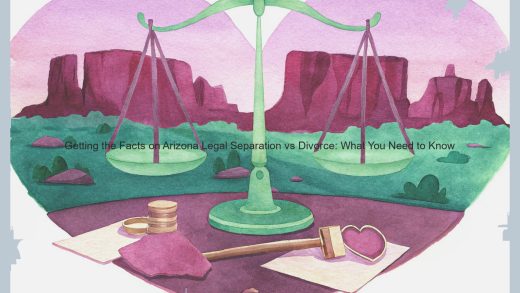Arizona Slander Law Overview
A layman’s understanding of the term "slander" is the action or the crime of speaking false words in a defamatory manner that causes injury to a person’s reputation. Under Arizona law, slander generally means the uttering of false and defamatory words to a third party that cause plaintiff damage. In Arizona, what may be classified as slander falls into two categories: slander per se and slander per quod. Slander per se consists of a communication that fits within four recognized categories: Long v. Van De Carr, 78 Ariz. 311, 315, 279 P.2d 698, 701. Slander per quod is any other form of communication that is deemed slanderous that does not fit within the four categories of slander per se. Id.
The key elements required to prove a successful case of slander per se are that the defendant: (1) made the statements; (2) publication of those statements that constitute slanderous remarks; (3) cause special damages to plaintiff; and (4) the documents were not subject to a privilege. Whelan , 98 Ariz. at 223 (holding that a qualified privilege must be shown to exist before damages expert evidence may be necessary); see also, Tweedy v. Town of Peoria, 25 Ariz. App. 38, 41, 541 P.2d 562, 565, (1975) (noting that the grounds upon which a plaintiff may recover are not of necessity exclusive).
In the case of slander per quod, an additional element of special damages must be made out pursuant to Arizona’s defamation per quod strictures. Ditty v. CheckRite, Ltd., 173 Ariz. 345, 349, 843 P.2d 758, 762 (App. 1992).
If privilege has not been waived, the plaintiff must demonstrate that it falls within one of the recognized exceptions in order to recover. The recognized exceptions to the defamatory nature of a communication are: (a) Joint Interest; (b) Common Interest; (c) Defense of another’s interest; and (d) Self Defense. See e.g., Miller v. Bloodworth, 195 Ariz. 1, 2 (App. 1999); Rabins v. Goodman, 2011 WL 1600708 (April 27, 2011) (comm’ case).

Slander Vs. Libel
In Arizona, defamation is generally classified into two categories: oral statements and written statements. Oral defamatory statements are considered slander. Written statements are considered libel. For oral defamation or slander to be actionable in Arizona, the victim must genuinely suffer personal injury in addition to just suffering reputational harm. Such personal injury could include but is not limited to "pain, humiliation or embarrassment."
When the plaintiff is a private person as opposed to a public figure, he or she will be able to recover for oral defamation or slander only if he or she can prove that the defendant acted with negligence. Public figures will have to prove that the defendant acted with actual malice in order to recover for oral defamation.
Some examples of "verbal defamation" that may be actionable slander include:
While slander tends to be more difficult to prove than libel, it is still possible to successfully establish defamation with an oral statement so long as the victim is able to show that damages have occurred. In some cases, the defamatory statement will be so damaging that damages are assumed. This is known as "per se" slander.
Slander is not distinct from other types of defamation. Libel is a type of defamation that occurs when someone verbally makes false statements about another person. The difference between slander and libel is that slander occurs through verbal communication, while libel occurs through written communication. As such, it is important to know what exactly falls under each category. Here are a few examples of statements that would fall under each type of defamation:
As you may have noticed, the difference between slander and libel is simply one of medium and format rather than substance. This means that in many cases, the same statements can be the basis for a charge of both slander and libel.
Therefore, if the victim is a public figure bringing forth a case of defamation, the plaintiff can, in essence, claim both slander and libel. On the other hand, if the victim is a private figure bringing forth a case of defamation, the defendant can defend against both forms of potential libel claims by arguing that he or she did not act negligently, or against slander claims by arguing that the plaintiff failed to suffer personal injury.
Pursuing A Slander Claim In Arizona
The next step toward seeking compensation for the damages to your reputation is to file a civil lawsuit against the liable party in Arizona state court. This process requires you to prepare and deliver a formal complaint to the defendant, then follow the civil litigation process through mediation and potential trial. Navigating the filing process and determining the value of your claim can be a challenge without the guidance of a Phoenix area slander attorney. Your lawyer should be able to prepare the necessary documents, inform you of important time constraints regarding the filing process, and represent you throughout each stage of litigation. Here is a brief overview of the steps involved in filing a claim: Deliver a Written Demand to the Defendant. Before you can file a lawsuit, you must first give the liable party a chance to rectify the situation. To do this, you must serve him or her with a written demand letter. The letter should explain how the party’s words or actions have harmed your reputation and identify any damages you seek. File the Lawsuit. Once you have served the demand letter, you will have a limited amount of time to file a claim against the liable party. If you fail to meet this deadline, you may lose your right to recover compensation for your damages. Arizona has strict statutes of limitations for all types of claims: Gather Evidence. To prove that slander has occurred, you must be able to provide substantial evidence of the damaging statements, your alleged damages and the extent of the harm your reputation has suffered. Wait for the Discovery Period to End. During the discovery period, you will possess the ability to request evidence from the other party. Soon after the end of this period, an insurance adjuster will investigate your case to determine whether you have sufficient evidence to substantiate your claims. Review Settlement Offers. If evidence shows that the other party is responsible for your damages, that party’s insurance provider may extend a settlement offer. Many victims of defamation choose to settle rather than go to trial. If you choose to go this route, you shouldn’t accept an offer without first consulting your lawyer.
Slander Defenses
Defense Against Slander Claims in Arizona:
A number of defenses can be used in Arizona to counteract slander accusations. Even if the offense is proven, these defenses can absolve the defendant from liability altogether. These include judicial privilege, legislative privilege, peer review privilege and other protected activities.
Judicial privilege allows parties to speak freely in legal proceedings. This covers judges, attorneys and witnesses as they appear for testimony. For example, if a witness is being honest about the quality of their experience, that person cannot be held liable if the statements are later found to be false.
Legislative and court privileges protect proceedings in certain administrative and legislative contexts. Government officials are allowed to freely discuss relevant matters within their review . For instance, city council members are exempt from criminal liability for statements made during an open meeting. Even though some members may be present at the council meeting merely as a formality and have no real voice or opinion, they are still covered by this privilege.
Due to the nature of some professions, certain individuals need to be able to speak freely in order to perform their jobs without fear of reprisal or illegal punishment. For instance, doctors and other medical professionals might lose their job or be subjected to malicious peer scrutiny if they speak out against deficiencies or bad practices of their peers. To encourage employees to make candid health assessments, medical facilities and associations have created protection against peer reviews. This means any statements made within the context of the review cannot be held against the speaker unless it can be proven that the statements were knowingly false.
Slander Implications
In Arizona, there are various consequences for slander. A defendant who is found in violation of slander subject to the criminal penalties of a Class 1 misdemeanor (up to 6 months in jail and/or a fine up to $2,500 which must be paid to the Arizona Victims’ of Crime Fund). A civil violation may subject you to money damages (the type of damages to be discussed below). The exposure to any penal, including criminal consequences, is outlined in the Arizona Revised Statute, ARS 13-1208.
Additionally, a person found guilty in a civil court case is potentially liable for "damages." This means that if a person proves that a defendant was guilty of slander, the court may order the defendant to pay the difference between the plaintiff’s reputation before and after the slander, assuming there is any difference (often this difference is considered the actual damages) or emotional distress (slander is a type of historical action considered to be the "tort" of defamation).
Example 1: If the defendant was a lawyer (assuming there is no other source/defense to the defamatory statement), the plaintiff may be able to prove that the defendant’s defamatory statement caused the plaintiff to lose business opportunities (this may be out-of-pocket losses), as himself or through the use of an expert witness, can explain to the court/ jury how the plaintiff’s business was affected when the defendant knowingly accused the plaintiff of committing a felony. This is often calculated using a method that looks like: [Value of business before defamation] – [Value of business after defamation] = the plaintiff’s damages that may be awarded by the court/jury as a result of the defendant’s defamatory statement. This method is often further criticized by defendants, usually unsuccessfully, as being speculative and not direct damages.
Example 2: If a plaintiff has a severe emotional reaction to the defamatory statement that the plaintiff made, for instance, if the plaintiff feels sick or depressed after a person (defendant) defames the plaintiff, using such evidence as medical records and other evidence showing a causal connection (temporal, or by medical testimony) between the defamatory statement and the plaintiff’s emotional distress, and the emotional distress is severe enough to have potentially caused the plaintiff a personal injury or other damage, the plaintiff would be able to obtain such damages through the use of expert testimony related to the severity of the emotional distress and its impact on the plaintiff’s day-to-day life and its future impact on the plaintiff’s life. While the plaintiff cannot usually obtain damages for the feeling of being slanderously accused of a crime (the rationale being that slander is historically an offense against property), the plaintiff can usually obtain damages for any medical bills incurred as a result of the need to have their emotional distress treated and possibly any treatment that would be necessary to treat the emotional distress in the future. See Gaddis v. Norton-Tasman, 806 P.2d 318 (Ariz. App. 1990).
Current Slander Cases and Trends in Arizona
Recent trends and cases in Arizona slander law focus on the areas of defamation per se, truth, opinion and provisions of the Communications Decency Act (CDA). Common law defamation per se consists of the publication of words which are so necessarily hurtful that general damages are presumed. Four categories of words are deemed to be necessarily harmful and, therefore, defamatory per se: (1) words which impute the commission of a crime and involve moral turpitude; (2) words that impute a loathsome disease; (3) words which inaccurately concern a person’s trade or profession; and (4) words which impute serious sexual misconduct. In general, words in the first three categories can be proved as defamatory by extrinsic circumstances (induction) but words in the last category can only be proved as defamatory by the words themselves (deduction).
Opinions expressed in numerous social media postings and other electronic communications have caused many to wonder whether courts will recognize them as "in fact" defamatory statements of fact. A recent Arizona case, Hadnot v. Hayes, 185 Ariz. 47 (App. 1995), involved an attorney who submitted a false statement regarding his opponent’s association with a dissolved professional corporation he had owned along with his former partner. The court noted that a statement is either a fact or an opinion. There is a line between an expression of opinion and a false statement of fact. If the assertion is provably false , it cannot be construed to be an expression of opinion. A statement that "someone is a criminal and should be jailed" or that "someone is insane" could not be construed to be an opinion because those statements imply that the plaintiff committed a crime or was insane. There is much case law on the distinction between an opinion and a false statement of fact. Even if not defamatory, an opinion may still be actionable if it implies undisclosed facts. Even if a statement suffers from the emotional harm caused by defamation, if it does not pass the test for being actionable defamation, a claim for infliction of emotional distress has been held not to be available.
To support a claim for defamation per se based on an email, a District of Arizona court held that an email must not only concern the plaintiff but also would have to damage the plaintiff’s reputation in the eyes of a substantial and respectable minority in the community. An Arizona District Court addressing a motion to dismiss further held that the Communications Decency Act, Title 47 U.S.C. §§ 230 (C) and (E)(3), amended as per Parker v. Google, Inc., 667 F. Supp. 2d 1199 (N.D. Cal. 2009) bars claims of false light invasion of privacy, intentional and negligent infliction of emotional distress, defamation, defamation per se, negligence, tortious interference and invasion of privacy based on material posted by third parties. The impact of the CDA on the outcome of such claims raises further concerns regarding the viability of causes of action available in these situations.



